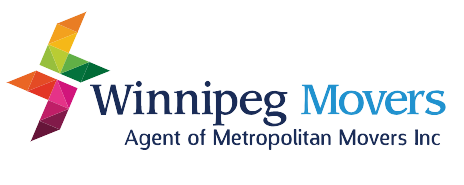
As a moving company, your success hinges on a solid foundation – not just in terms of physical infrastructure but also in terms of robust software solutions to streamline operations, enhance efficiency, and deliver exceptional service to your customers. In this article, we’ll explore how RFL (Routing, Fleet Management, and Logistics) solutions can serve as the foundation for success for your moving company.
Understanding RFL Solutions
RFL solutions encompass a range of software tools and technologies designed to optimize routing, fleet management, and logistics operations for businesses in the transportation and logistics industry.
These solutions leverage advanced algorithms, real-time data, and automation to improve route planning, vehicle tracking, dispatching, and overall operational efficiency. By integrating RFL solutions into their operations, moving companies can enhance productivity, reduce costs, and provide superior service to their customers.

The Importance of RFL Solutions for Moving Companies
RFL solutions are indispensable for moving companies, offering streamlined operations, optimized routing, and enhanced customer satisfaction. By leveraging advanced technology and real-time data, RFL solutions empower moving companies to improve efficiency, reduce costs, and stay ahead in a competitive market. In the highly competitive moving industry, efficient and reliable operations are essential for success. RFL solutions offer several key benefits for moving companies:
1. Enhanced Route Planning
RFL foundations use sophisticated algorithms to optimize route planning, taking into account factors such as traffic patterns, delivery schedules, vehicle capacities, and customer preferences. By identifying the most efficient routes and minimizing travel time and distance, moving companies can reduce fuel consumption, vehicle wear and tear, and overall operational costs.
2. Improved Fleet Management
With RFL solutions, moving companies can effectively manage their fleet of vehicles, monitor driver performance, and track vehicle locations in real time. By gaining visibility into fleet operations, managers can identify inefficiencies, address issues proactively, and ensure timely and reliable service delivery to customers. Additionally, features such as vehicle maintenance scheduling and driver communication tools help to maximize fleet uptime and optimize resource utilization.
3. Streamlined Logistics Operations
RFL solutions streamline logistics operations by automating tasks such as order processing, dispatching, and inventory management. By centralizing data and automating repetitive tasks, moving companies can reduce administrative overhead, minimize errors, and improve overall operational efficiency.
Advanced features such as electronic proof of delivery (ePOD) and customer portals enhance transparency and communication throughout the supply chain, leading to greater customer satisfaction.
4. Scalability and Flexibility
RFL solutions are highly scalable and adaptable to the evolving needs of moving companies, whether they are small local movers or large national carriers. With cloud-based platforms and modular architecture, RFL solutions can easily scale up or down to accommodate changes in business volume, geographic expansion, or service offerings. This scalability allows moving companies to remain agile and responsive to market demands while maintaining operational efficiency and profitability.
5. Competitive Advantage
By investing in RFL solutions, moving companies gain a competitive advantage in the marketplace. Efficient operations, on-time deliveries, and superior customer service are key differentiators that set companies apart from their competitors. RFL solutions enable moving companies to optimize their operations, reduce costs, and deliver exceptional service, ultimately enhancing their reputation and attracting more customers.

Choosing the Right RFL Solution for Your Moving Company
Choosing the right RFL (Routing, Fleet Management, and Logistics) solution for your moving company is a critical decision that can have a significant impact on your business’s efficiency, productivity, and overall success.
With numerous options available in the market, it’s essential to carefully evaluate your needs and preferences to select the solution that best aligns with your company’s goals and objectives. Here are some factors to consider when choosing the right RFL solution for your moving company:
1. Assess Your Specific Needs
Before exploring RFL solutions, take the time to assess your company’s specific needs and requirements. Consider factors such as the size and scale of your operations, the number of vehicles in your fleet, the geographic areas you serve, and the types of services you offer.
Identify the key challenges and pain points in your current operations that you hope to address with an RFL solution. By understanding your unique needs and priorities, you can narrow down your options and focus on solutions that are tailored to your business.
2. Evaluate Features and Functionality
Once you have a clear understanding of your needs, carefully evaluate the features and functionality offered by different RFL solutions. Look for essential features such as route optimization, real-time tracking, dispatching, scheduling, and reporting capabilities.
Consider whether the solution offers customization options or integration with other systems and software applications used in your operations. Pay attention to user interface design and ease of use, as well as the availability of mobile applications for on-the-go access.
3. Consider Scalability and Flexibility
Choose an RFL solution that can scale with your business and adapt to future growth and changes in the industry. Consider whether the solution can accommodate an increasing number of vehicles, drivers, and customers as your business expands.
Look for flexible pricing plans and subscription models that allow you to adjust your usage based on your evolving needs. Ensure that the solution offers robust support and training resources to help your team onboard new users and maximize the value of the system over time.
4. Assess Integration Capabilities
Integration with existing systems and software applications is crucial for seamless operations and data management. Ensure that the RFL solution can integrate with your accounting software, CRM system, dispatching tools, and other essential applications used in your business.
Consider whether the solution offers APIs (Application Programming Interfaces) or third-party integrations that allow for easy data exchange and interoperability between different systems. A well-integrated RFL solution can streamline workflows, reduce duplicate data entry, and improve overall efficiency.
5. Evaluate Reliability and Support
Choose an RFL solution from a reputable provider with a track record of reliability and excellent customer support. Research the vendor’s reputation by reading reviews, testimonials, and case studies from other customers.
Consider factors such as uptime, system performance, and responsiveness to support inquiries and technical issues. Look for a vendor that offers comprehensive support services, including 24/7 customer support, online resources, training programs, and regular software updates. A reliable vendor with robust support services will ensure a smooth implementation and ongoing success with your chosen RFL solution.

6. Conduct a Pilot or Trial Period
Before committing to a long-term contract, consider conducting a pilot or trial period with one or more RFL solutions to evaluate their performance and suitability for your moving business. During the trial period, test the system with a limited number of users and vehicles to assess its functionality, usability, and effectiveness in addressing your needs.
Solicit feedback from key stakeholders, including drivers, dispatchers, and operations managers, to gather insights into their user experience and identify any areas for improvement. Use the trial period as an opportunity to compare different solutions and make an informed decision based on real-world testing and feedback.
Conclusion
In conclusion, RFL solutions serve as the foundation for success for moving companies, offering a wide range of benefits, from enhanced efficiency and cost reduction to improved customer satisfaction and future-proofing.
By leveraging advanced routing, fleet management, and logistics technologies, moving companies can optimize their operations, reduce costs, and deliver superior service to their customers.
Whether it’s optimizing route planning, improving fleet management, streamlining logistics operations, or enhancing customer satisfaction, RFL solutions play a crucial role in driving success and profitability in the competitive moving industry.







